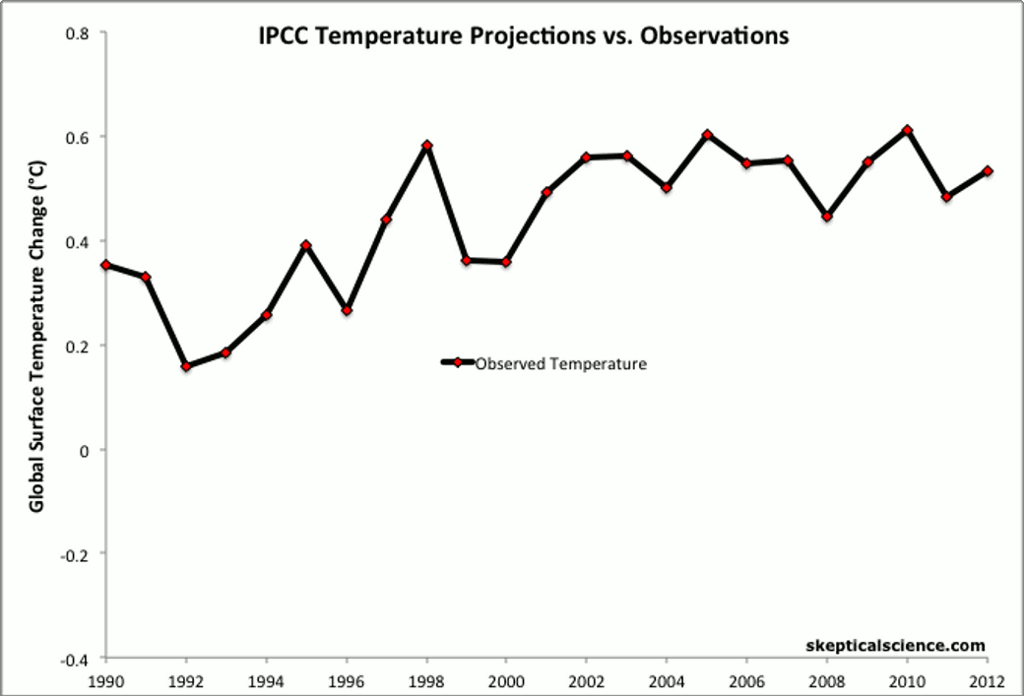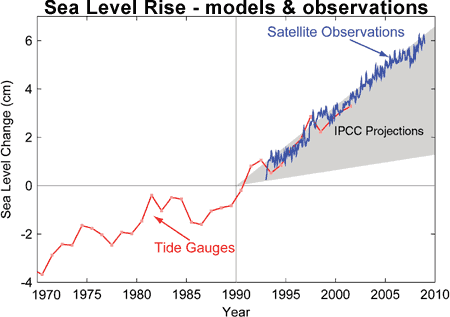sdifox
No Lifer
- Sep 30, 2005
- 99,470
- 17,592
- 126
It boils down to this. Real science uses the scientific method. The steps of the scientific method are simple. Come up with a hypothesis, then check your hypothesis with experiments.
Climate "science" on the other hand has much more in common with finance and economics. It relies heavily on models. There's nothing wrong with that. However it makes heavy use of backtesting to validate the models. That works well as a filter, but to truly validate any climate model, we need to test their predictions against the future.
Climate science is based on thermodynamics, heat and mass transfer, and conservation of mass and energy. All settled science. If you don't believe so feel free to prove another theory that fits the observed data and get yourself a Nobel prize.
Does climate science use heat and mass transfer and thermodynamics? It should, but that is not to be celebrated. It is a basic requirement. That's the first step, not the last. The question is how good is climate science in modeling the system that is earth? The answer is that we're not there yet.

The above picture illustrates why large uncertainty ranges are a scam. Pink lines are my "uncertainty" range of +- .4 degrees. Red like is my high tech prediction.





OP, global warming or climate change is not science, it's a religion and you are not going to convince anyone who doesn't believe in that culture/religion.
As Sandorski said, "ah No".
Climate change follows the scientific method. All mainstream climate theories are peer reviewed. They are also testable and falsifiable. The IPCC has been making predictions since 1990. All predictions for the last 25 years have been within the margin of error when compared against the observed surface temperatures.
The "skeptical" predictions not so much:

Sea level rise:

It's obvious you don't have much experience using scientific analysis to perform real world operations. There are always error bars. High performing organizations use risk analysis to make decisions when there are uncertainties.

The science shows the likelihood is probably in the 4-5 region and the impact in cost and safety is in the 4-5 region as well. Mitigation is required.
Pretend your the city manager for Miami beach. A couple of times a year during high tide your downtown looks like this:

Most climate scientists from every major university and governmental science agency around the planet agree that you'll be seeing more and worse flooding over the coming decades.
Your own data shows increasing number of tidal flood days:

You could recommend:
- Spending 400 million in new flood prevention measures - what they actually did
- Wait 10-20 years for better models to see if flooding might happen or be a problem - What you've recommended
Which one of those recommendations is responsible and which is negligent? :hmm:

Climate change follows the scientific method. All mainstream climate theories are peer reviewed. They are also testable and falsifiable. The IPCC has been making predictions since 1990. All predictions for the last 25 years have been within the margin of error when compared against the observed surface temperatures.
Climate "Science" follows the scientific method as much as psychology follows the scientific method. The fundamental natural sciences such as physics and chemistry have set a much higher bar.
Social "Sciences" such as economics or psychology or sociology are less rigorous. Climate "Science" falls closer to the Social "Sciences" spectrum in that regard compared to the natural sciences.
It's obvious you don't have much experience using scientific analysis to perform real world operations. There are always error bars. High performing organizations use risk analysis to make decisions when there are uncertainties.
I understand the need for organizations to use risk analysis when making decision to allocate resources. That is what PMO (or project management) does. Last time I checked, project management was not considered a science.
Your own data shows increasing number of tidal flood days:
These are extremely short timescales. Earth has been supporting life for hundreds of millions of years. In that period there have been warm periods and cool periods. There have been high sea level periods and low sea level periods. Everything moves in ebbs and flows. The best way to understand what is happening is to sit back and collect more data. It's not be be an alarmist.

Notice the starting point of the IPCC models. Now shift that up to where the first data point is. This is another problem with the emphasis on temperature differences rather than absolute temperatures. You can manipulate your starting point to wherever you want to make your models look good. With absolute temperatures it is much harder to fake.
This sort of manipulation is quite common in the social sciences. Heck it is found often in medical/biological papers as well.
http://www.nature.com/news/over-half-of-psychology-studies-fail-reproducibility-test-1.18248
They important factor is the ease of repeating, reproducing, and validating papers. In the hard natural sciences there is a higher emphasis and a higher bar when validating results. In Climate "Science" the only way to validate results is to see how current predictions match future data. This is something Climate "Scientists" will not admit.
What do you think I did?
"Stem cells are horrible! They kill babies to get them!"Only a moronic fool would say climate change doesn't exist.
The debate is whether or not human activity is the cause of it or not.
The ignorant common man has just misunderstood the argument and assumed that means climate change doesn't exist at all.
OP, global warming or climate change is not science, it's a religion and you are not going to convince anyone who doesn't believe in that culture/religion.
The whole premise of point #3, is to use the El Nino spike.
We are both well versed enough to see right through that.
Let's leave Satellite alone until we see how it balances out after La Nina.
https://en.wikipedia.org/wiki/List_of_countries_by_carbon_dioxide_emissions
Maybe you should fix your shithole first.
Climate change as a settled science is BS. There is a real problem, and it is over-population. In developed countries the growth rate of population has slowed. Except for migration. The populations in undeveloped countries are out of control, and the resulting spillover is what we are seeing.
Over-population is affecting pollution, natural resources, the oceans and the amount of food required to feed everyone. This is a problem that will eventually fix itself, just like those cute deer that overrun an area, that refuses to allow hunting. I don't know the optimum number of people that the Earth can support. Seven billion plus seems high for the long term. So this climate change BS is just a diversion that the political class is profiting from. It's made Al Gore a billionaire.
If evolution's real, why are there still things that aren't humans?It's a heavy lift when they see snow, make a snowball to throw on the floor, and say something along the lines of "I has a snowball, me no see Global Warming you Morans"
I doubt there's much RoI in that effort
___________
Climate change follows the scientific method. All mainstream climate theories are peer reviewed. They are also testable and falsifiable. The IPCC has been making predictions since 1990. All predictions for the last 25 years have been within the margin of error when compared against the observed surface temperatures.
Climate "Science" follows the scientific method as much as psychology follows the scientific method. The fundamental natural sciences such as physics and chemistry have set a much higher bar.
Social "Sciences" such as economics or psychology or sociology are less rigorous. Climate "Science" falls closer to the Social "Sciences" spectrum in that regard compared to the natural sciences.
It's obvious you don't have much experience using scientific analysis to perform real world operations. There are always error bars. High performing organizations use risk analysis to make decisions when there are uncertainties.
I understand the need for organizations to use risk analysis when making decision to allocate resources. That is what PMO (or project management) does. Last time I checked, project management was not considered a science.
Your own data shows increasing number of tidal flood days:
These are extremely short timescales. Earth has been supporting life for hundreds of millions of years. In that period there have been warm periods and cool periods. There have been high sea level periods and low sea level periods. Everything moves in ebbs and flows. The best way to understand what is happening is to sit back and collect more data. It's not be be an alarmist.

Notice the starting point of the IPCC models. Now shift that up to where the first data point is. This is another problem with the emphasis on temperature differences rather than absolute temperatures. You can manipulate your starting point to wherever you want to make your models look good. With absolute temperatures it is much harder to fake.
This sort of manipulation is quite common in the social sciences. Heck it is found often in medical/biological papers as well.
http://www.nature.com/news/over-half-of-psychology-studies-fail-reproducibility-test-1.18248
They important factor is the ease of repeating, reproducing, and validating papers. In the hard natural sciences there is a higher emphasis and a higher bar when validating results. In Climate "Science" the only way to validate results is to see how current predictions match future data. This is something Climate "Scientists" will not admit.


